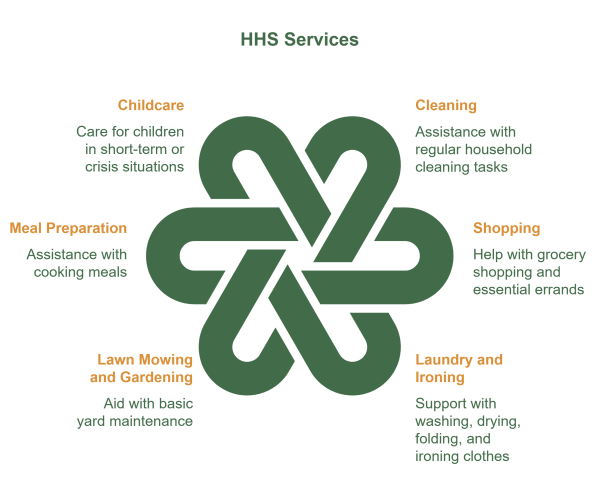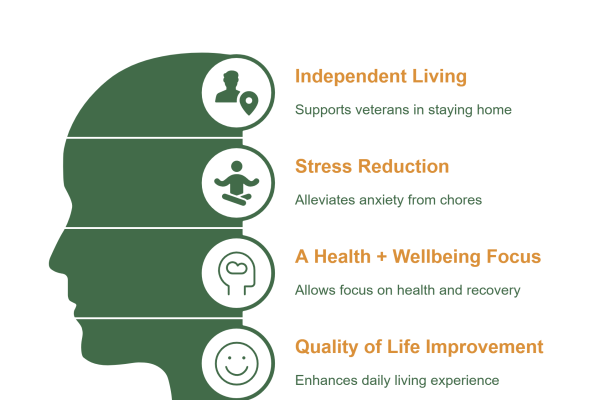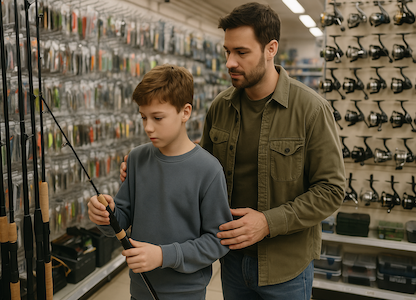For those who have served their country, the transition to civilian life can present unique challenges—especially when it comes to managing everyday household tasks. Recognising this, the Department of Veterans’ Affairs (DVA) provides a range of support services to help Australian veterans maintain their well-being and independence.
One such initiative is DVA Household Services (HHS), a program designed to assist eligible veterans with essential home maintenance tasks that may be difficult due to service-related injuries or conditions. By offering practical assistance with domestic chores, HHS enables veterans to focus on their health, recovery, and overall quality of life.
For many veterans, household management can become overwhelming, particularly when dealing with physical limitations or medical conditions. HHS ensures they receive the necessary support to live comfortably and independently in their own homes.
Key takeaways
- DVA Household Services helps veterans with daily tasks like cleaning, cooking, and gardening when health issues make these difficult to manage.
- To qualify for HHS, your medical condition must be linked to your military service and impact your ability to manage essential household duties.
- Support can be temporary (like after surgery) or ongoing for veterans living with chronic or permanent health issues.
- DVA can pay approved providers directly, or you can arrange services yourself and be reimbursed—whichever suits your needs.
- From checking eligibility to filling out forms and finding reliable providers, VetComp is here to make the application process easier.
Understanding DVA Household Services (HHS)
What is DVA Household Services?
DVA HHS is a government-funded program aimed at assisting eligible veterans with household tasks they may struggle to complete due to service-related medical conditions. The program is designed to enhance veterans’ quality of life by ensuring their living environment remains safe, clean, and manageable.
Purpose of the Program
The primary goal of HHS is to help veterans maintain their independence by providing assistance with daily household activities. These tasks can range from cleaning and laundry to gardening and meal preparation, alleviating the physical burden on veterans and allowing them to focus on their health and well-being.
How HHS Differs from Other Veteran Support Programs
While several support services exist for veterans, HHS is unique in that it is specifically tailored for those whose medical conditions are directly linked to their military service. This sets it apart from programs like Veterans’ Home Care (VHC), which is based on assessed clinical need rather than service-related eligibility.
In essence, HHS is a targeted support system, ensuring that veterans who have sustained service-related injuries or health conditions receive the necessary assistance to manage their household effectively. By addressing these fundamental needs, the program plays a crucial role in improving the overall well-being and independence of Australia’s veteran community.
Who Is Eligible for DVA Household Services?
Not all veterans automatically qualify for DVA HHS — the program is specifically designed for those who face difficulties in managing household tasks due to service-related health conditions.
Eligibility Criteria
To be eligible for HHS, a veteran must meet the following requirements:
- Be a former or current member of the Australian Defence Force (ADF) with service recognised by DVA.
- Have a medical condition that is directly related to their military service.
- Demonstrate that their condition prevents or significantly impacts their ability to perform essential household tasks.
If you have a service-related condition, you may be entitled to other compensation. Connect with our advocates at VetComp and we will assist you to get the support and benefits you deserve.
The Role of Medical Assessments
Medical assessments play a crucial role in determining eligibility for HHS. Veterans must provide medical documentation proving that their condition affects their ability to complete household duties. This assessment is essential not only to establish eligibility but also to determine the level of support required.
By ensuring that assistance is directed to those who need it most, the program helps veterans maintain their independence while living in a safe and well-managed home environment.
Services Covered Under HHS
The DVA HHS program offers a range of domestic support services, helping veterans manage tasks that may have become physically challenging due to their service-related conditions.
Comprehensive List of Services
Veterans who qualify for HHS may receive assistance with:
- Cleaning – Regular household cleaning tasks such as vacuuming, dusting, and bathroom maintenance.
- Shopping – Assistance with grocery shopping and other essential errands.
- Laundry and Ironing – Help with washing, drying, folding, and ironing clothes.
- Lawn Mowing and Gardening – Support with basic yard maintenance, including mowing, weeding, and trimming.
- Meal Preparation – Assistance with cooking meals, particularly for those who may struggle with prolonged standing or handling kitchen equipment.
- Childcare – Available in short-term or crisis situations, ensuring children are cared for while veterans recover from an illness or injury.

Short-Term vs. Long-Term Support
The level and duration of support provided through HHS will depend on the veteran’s medical needs.
- Short-term assistance may be granted for temporary conditions or post-hospital recovery.
- Long-term support is available for veterans with chronic or ongoing medical conditions that permanently impact their ability to manage household tasks.
By covering these essential services, HHS plays a vital role in improving the daily lives of veterans, reducing stress and physical strain while allowing them to focus on their health and well-being.
How to Apply for DVA Household Services
Applying for DVA HHS involves a structured process to ensure that eligible veterans receive the support they need. The application process includes several key steps:
Step-by-Step Application Process
Step 1 — Gather Necessary Documents
- Veterans must provide proof of service in the ADF.
- A medical assessment confirming that a service-related condition impacts their ability to perform household tasks is required.
- Any additional supporting documents that may assist in assessing the need for HHS.
Step 2 — Complete the Application Form
- Veterans need to fill out the DVA Household Services application form (available on the DVA website or through a DVA office).
- The form requires details about the veteran’s medical condition, household assistance needs, and preferred service providers (if applicable).
Step 3 — Submit the Application
The completed form and supporting documents can be submitted:
- Online via the MyService portal on the DVA website.
- By mail to the Department of Veterans’ Affairs.
- In person at a DVA office or through a Veteran Support Officer (VSO).
Step 4 — Assessment and Approval Process
- DVA will review the application, verify the veteran’s eligibility, and assess the level of assistance required.
- In some cases, additional medical reviews or further documentation may be requested.
Step 5 — Estimated Timeframe for Approval
Processing times can vary, but most applications are assessed within a few weeks.
- Veterans will receive a formal notification from DVA regarding their application outcome.
- Once approved, veterans can start accessing HHS support, either through DVA-approved service providers or by arranging services themselves (if reimbursement is preferred).
If you are struggling with your application or believe you should be receiving additional compensation as well, book a free consultation with VetComp for support that will make the DVA process easy!
How Is HHS Funded?
DVA HHS funding ensures that veterans receive financial assistance for essential household tasks. The program provides two main funding options:
Funding Options
Direct Payment to Service Providers
- DVA can pay approved service providers directly, removing the need for veterans to handle payments themselves.
- This ensures a hassle-free process where veterans receive services without out-of-pocket expenses (up to an approved limit).
Reimbursement for Veterans
- If veterans choose to arrange their own household services, they can pay upfront and seek reimbursement from DVA.
- Reimbursement is provided only for approved services and up to a set maximum rate.
Maximum Rates and Coverage Limitations
- DVA sets a maximum rate for each type of household service.
- Services that exceed this rate may require the veteran to cover the difference.
- The level of funding varies based on the veteran’s medical needs and eligibility.
Understanding the funding process helps veterans make informed decisions about accessing and managing their household services effectively.
Choosing a Service Provider
Veterans receiving DVA HHS have the flexibility to select service providers that best meet their needs. However, these providers must meet specific eligibility criteria to ensure high-quality and secure services.
Requirements for Providers
Australian Business Number (ABN)
- Service providers must have a registered ABN, ensuring they operate as a legitimate business.
Security and Compliance Checks
Providers may need to undergo certain security checks, such as:
- Police checks to verify their background.
- Working with Children Checks, if the services involve childcare support.
Quality and Professional Standards
- While DVA does not directly employ providers, it encourages veterans to choose reputable services that maintain high standards.
- Some veterans may prefer to use established agencies rather than independent providers.
Flexibility in Choosing Providers
- Veterans can select a provider that aligns with their needs and preferences.
- If choosing DVA-approved service providers, the payment process is streamlined with direct billing to DVA.
- Veterans who prefer alternative providers may need to pay upfront and claim reimbursement later.
By understanding these provider requirements, veterans can confidently access safe, high-quality support tailored to their household needs.
VetComp’s support team can connect you with relevant and DVA-friendly HHS providers. Contact us today if this is something we can assist you with.
Key Benefits of DVA Household Services
Every day chores can become harder for veterans living with pain, injuries, or health conditions related to their service. DVA Household Services (HHS) is here to help, making daily life a little more manageable.
Promotes Independent Living for Veterans
Getting support at home means you can keep living on your own terms, without needing to rely on family or move into care. HHS helps you manage the basics so you can stay comfortable and in control at home.
Reduces Stress and Anxiety Related to Household Chores
Cleaning, cooking, and yard work can be exhausting, especially if you’re in pain or not moving like you used to. HHS lightens the load, reducing stress and making it easier to stay on top of things.
Allows Veterans to Focus on Health and Well-Being
When the chores are taken care of, you can focus on what matters most—whether that’s your recovery, medical appointments, or simply having time to rest.
Improves Overall Quality of Life
A tidy, well-kept home helps you feel better in general. HHS helps you stay in a clean, safe space that feels good to live in.

How Does HHS Compare to Other Programs?
Veterans in need of home support services may come across multiple assistance programs. Understanding the differences between DVA HHS and Veterans’ Home Care (VHC) is key to determining eligibility and choosing the right support.
Difference Between HHS and Veterans’ Home Care (VHC)
Feature | DVA Household Services (HHS) | Veterans’ Home Care (VHC) |
Eligibility Criteria | Based on a service-related medical condition. | Based on an assessed clinical need, regardless of service connection. |
Types of Services | Household maintenance tasks such as cleaning, gardening, laundry, and meal prep. | Broader home care services, including personal care, domestic assistance, respite care, and social support. |
Assessment Process | Requires medical documentation linking the condition to military service. | Requires an assessment of the veteran’s overall care needs. |
Funding Approach | DVA covers costs up to an approved limit for eligible services. | Costs may be subsidised, but co-payments may apply. |
Why Some Veterans May Qualify for Both Programs
Some veterans may qualify for both HHS and VHC, depending on their situation. For example, if you have a service-related back injury, HHS can help with household tasks, while VHC might also provide personal care support if you’re experiencing age-related mobility issues.
Veterans should consider speaking with a DVA advocate from VetComp to assist with their ongoing support throughout the claims and compensation process.
Where to Get More Information
For veterans interested in applying for DVA HHS or seeking further details, several resources are available.
Official DVA Website and Contact Details
The DVA website provides up-to-date information on HHS eligibility, services, and application processes. Veterans can visit: DVA Household Services Page
For direct inquiries, veterans can contact DVA via:
- Phone: 1800 VETERAN (1800 838 372) (Australia-wide)
- Email: generalenquiries@dva.gov.au
Links to Application Forms and Eligibility Criteria
Application forms and eligibility details can be accessed through:
- DVA Forms Portal: HHS Application Form
- HHS and Attendant Care Factsheet: Download Here
How to Seek Assistance from VetComp
If you’re unsure where to start or need a hand with your paperwork, our team at VetComp is here to help. Our experienced DVA advocates understand the process and will work alongside you to make things easier. With our support, you can feel confident knowing you’re accessing the full range of benefits available to you.
Register your details here, and an advocate will be in touch soon
Living Well at Home with the Right Support
DVA Household Services can make everyday life more manageable for veterans dealing with service-related medical conditions. By easing the load of domestic tasks, the program helps veterans stay independent, reduce day-to-day stress, and focus on their health and recovery.
For those who are eligible, the support can be a real game-changer, from help with cleaning and gardening to assistance with meal prep. If you think you might qualify, it’s worth looking into.
Understanding your entitlements and getting the right help can make a big difference. If you’re not sure where to start, reach out to our advocates at VetComp. We’re here to guide you through the process and help you access the support you’ve earned.
📩 Get in touch with one of our experienced DVA Advocates today.
FAQs
We’ve gathered our most commonly asked questions here, so you can feel informed, at ease, and ready to take the next step toward the support and benefits you deserve.
Who can access HHS?
You may be eligible if you are a current or former ADF member with a recognised service-related medical condition that impacts your ability to manage essential household duties.
Do I need medical evidence to apply?
Yes. A medical certificate linking your condition to your military service is required to confirm eligibility and to determine the type and level of support you need.
What types of services are covered?
Support can include cleaning, shopping, laundry, lawn mowing, gardening, meal preparation, and in some cases, short-term childcare during illness or recovery.
Is HHS temporary or ongoing?
It depends on your situation. Assistance can be short-term (for example, after surgery) or long-term if you’re living with a chronic or permanent condition.
How does HHS differ from Veterans’ Home Care (VHC)?
HHS is specifically for veterans with service-related conditions, while VHC is based on assessed clinical need, regardless of service. Some veterans may qualify for both.
How do I apply for HHS?
You’ll need to complete an application form, provide proof of service, and include medical documentation. Applications can be lodged online via MyService, by mail, or at a DVA office.
VetComp can guide you through the process.
How long does it take to be approved?
Processing times vary, but most applications are reviewed within a few weeks. You’ll receive formal notice once a decision has been made.



